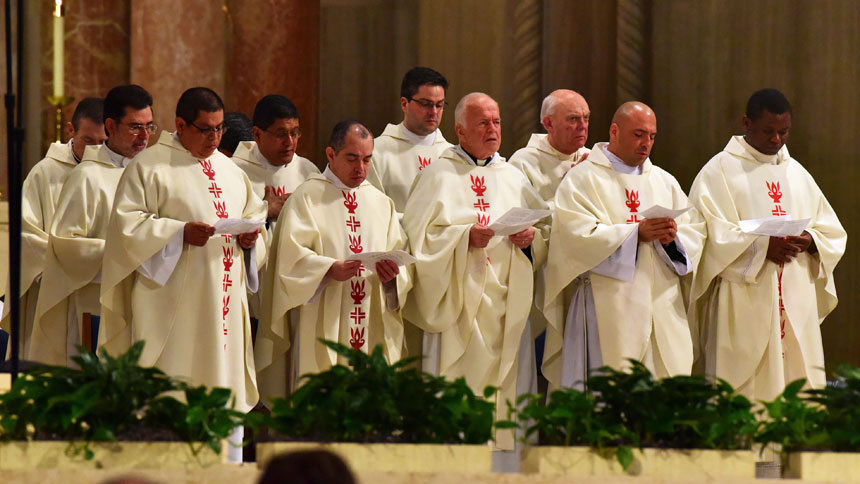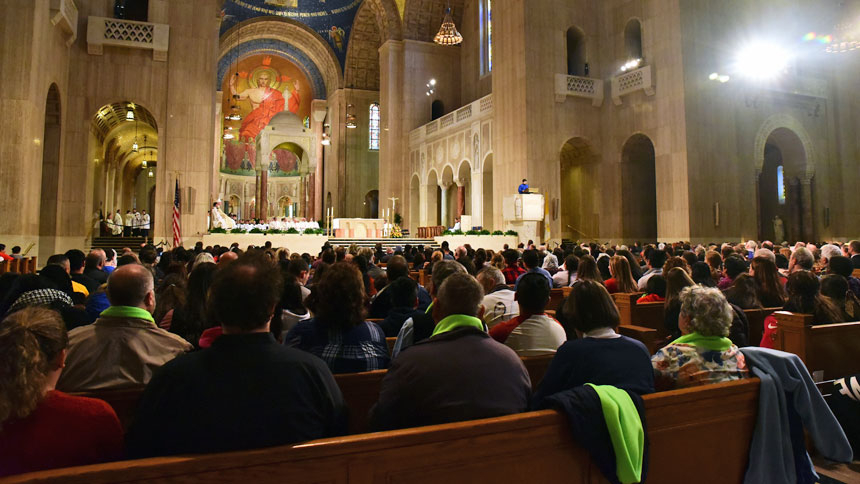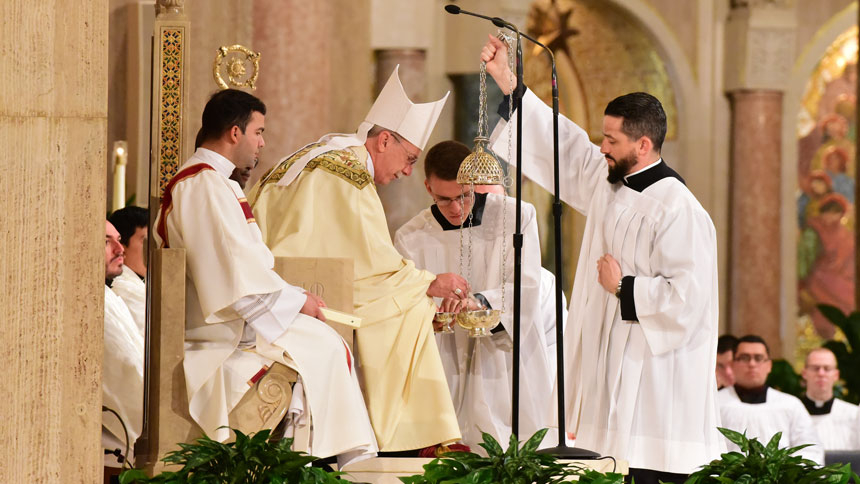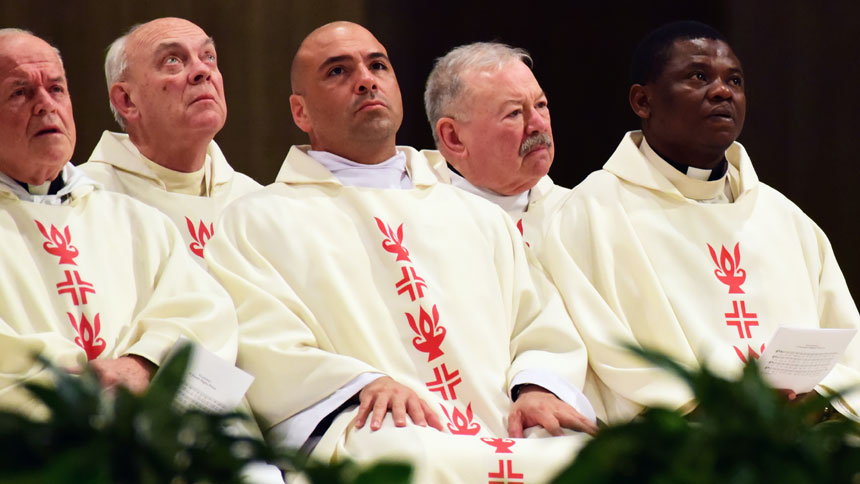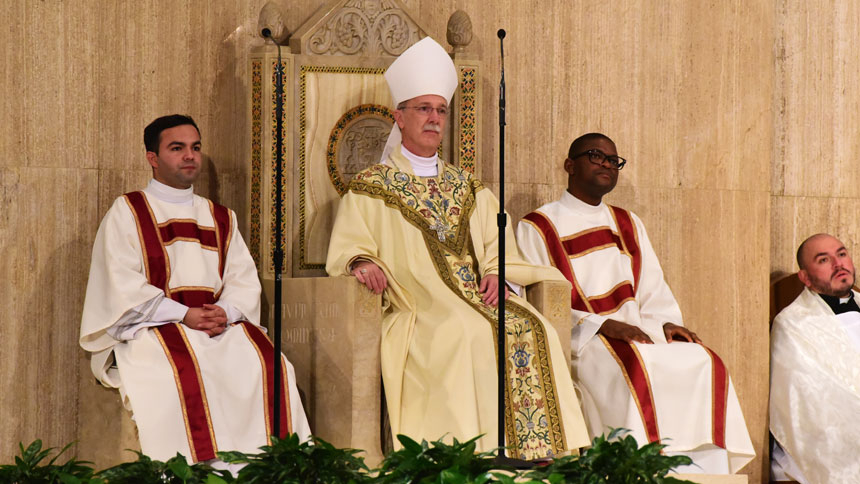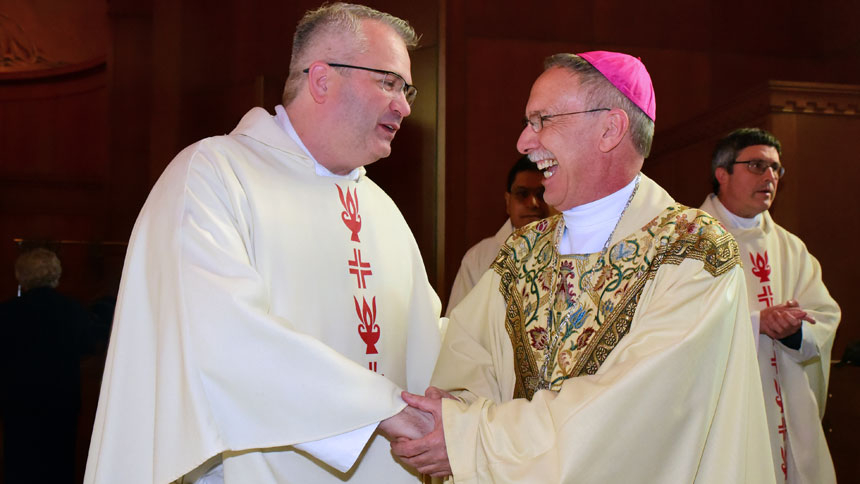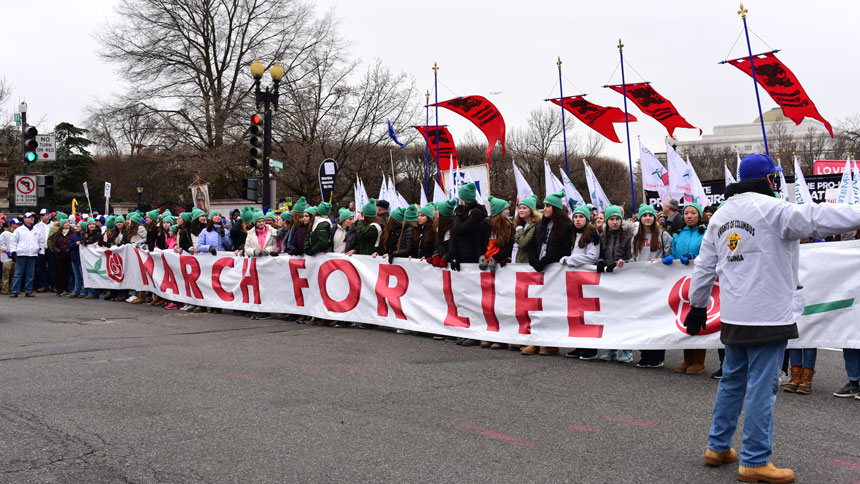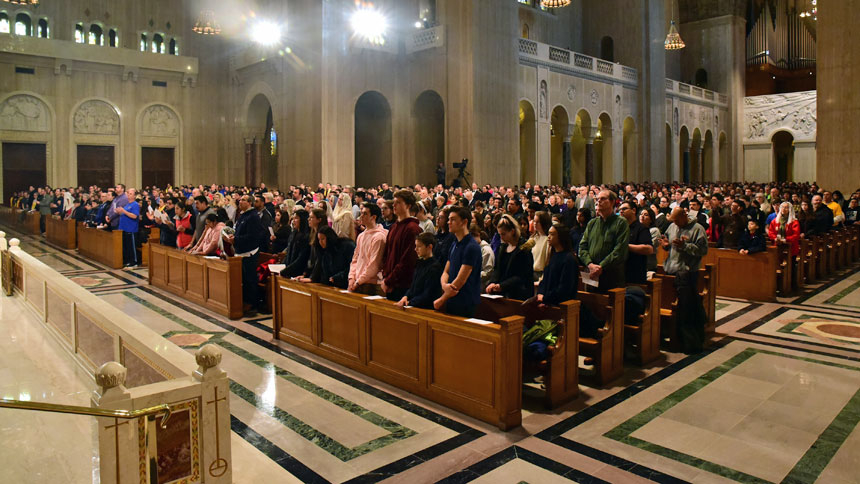
WASHINGTON, D.C. — Hundreds of North Carolinians gathered in the Basilica of the National Shrine of the Immaculate Conception to attend Mass before participating in the National March for Life Jan. 24.
The Mass was celebrated by Raleigh Bishop Luis Zarama and priests of the Raleigh and Charlotte dioceses.
The homily was delivered by Father Patrick Winslow, vicar general and chancellor of the Charlotte diocese, in place of Bishop Peter Jugis, who was unable to attend the liturgy due to illness.
In his homily, Father Winslow encouraged the congregants, who would soon be joining the March for Life bearing witness as disciples of Christ, of “bringing the light of Christ more brightly into this world to those who now and in the future most desperately need it.”
“The people of North Carolina come here every year,” he said. “We come here to join with people from all over the country – other Catholics, Christians, people of faith, people of goodwill and people, quite simply, of sound reason – to bear witness to the dignity of life.”
Participating in the March for Life every year since 1973 is about more than raising one’s voice in opposition to the U.S. Supreme Court’s controversial decision in Roe v. Wade to legalize abortion, he said.
“More importantly, it’s our hope that no one would ever want or desire an abortion. More than the change of law, we want the change of hearts and minds.”
Hearts and minds are indeed changing, he said, noting the decline in abortion rates and the increasing number of crisis pregnancy centers over abortion facilities.
“This is due to your prayers, your witness and your work,” he said.
But the fight must continue, he said, in our conversations with friends and family, with those who think abortion is acceptable or who don’t want to address it. Those conversations can be difficult, he said, because it’s a complex issue that can be considered from many angles – societal, legal, medical, moral and spiritual.
From a societal angle, abortion is about more than a woman’s choice; it’s a symptom of a breakdown in society. He recounted that after giving a homily on abortion, a parishioner came up to him after Mass and said, “Father, I agree with everything you said,” but “women don’t get pregnant by themselves. Where are the men?”
“It stuck with me. It is a societal issue, how we get to these problems. As a society, this has to be addressed,” he said.
“On the legal front,” he continued, “for us it’s very simple: At what point does a person be afforded the protection of law?”
Any time after conception is an arbitrary line, he said. “The state has an obligation to protect the innocent.”
Medical advances “increasingly tell the story of what we have been bearing witness to,” he also said.
“In the past, it’s been difficult to see what is going on behind the veil of flesh, but as technology increases, we’re able to see the beautiful process of life unfolding. It’s extraordinary! We can begin to tell when this little child begins to experience pain, so very early on. And these technological and medical advances are very informative – and increasingly making it difficult to believe something other than the fact that this is a human life.”
He continued, “For us (it is also) a moral question that is informed by faith, but it doesn’t require faith to see the issue, to see right from wrong here. People of good reason can see clearly the right and just thing to do.”
The spiritual aspect of abortion is insidious, he also noted.
“When people – most importantly, women – are in these positions that are so traumatic and difficult, it is easy to believe a lie. A lie is seductive. And there is a father of lies who’s all too willing to make sure that the words are whispered in the ear of people in these difficult situations: ‘It doesn’t have to be. You can roll back the hand of time. You can undo this.’”
“But you, we, all of us are here to pray, to bear witness and to proclaim the truth over and against such lies, to shine light where there is darkness. And in this sense we are fulfilling our discipleship. We are bringing the light of Christ more brightly into this world to those who now and in the future most desperately need it.”
After the Mass concluded, people joined the National March for Life down the Mall to pray in front of the U.S. Supreme Court building.
Photos by César Hurtado, James Sarkis and provided by Father John Putnam


